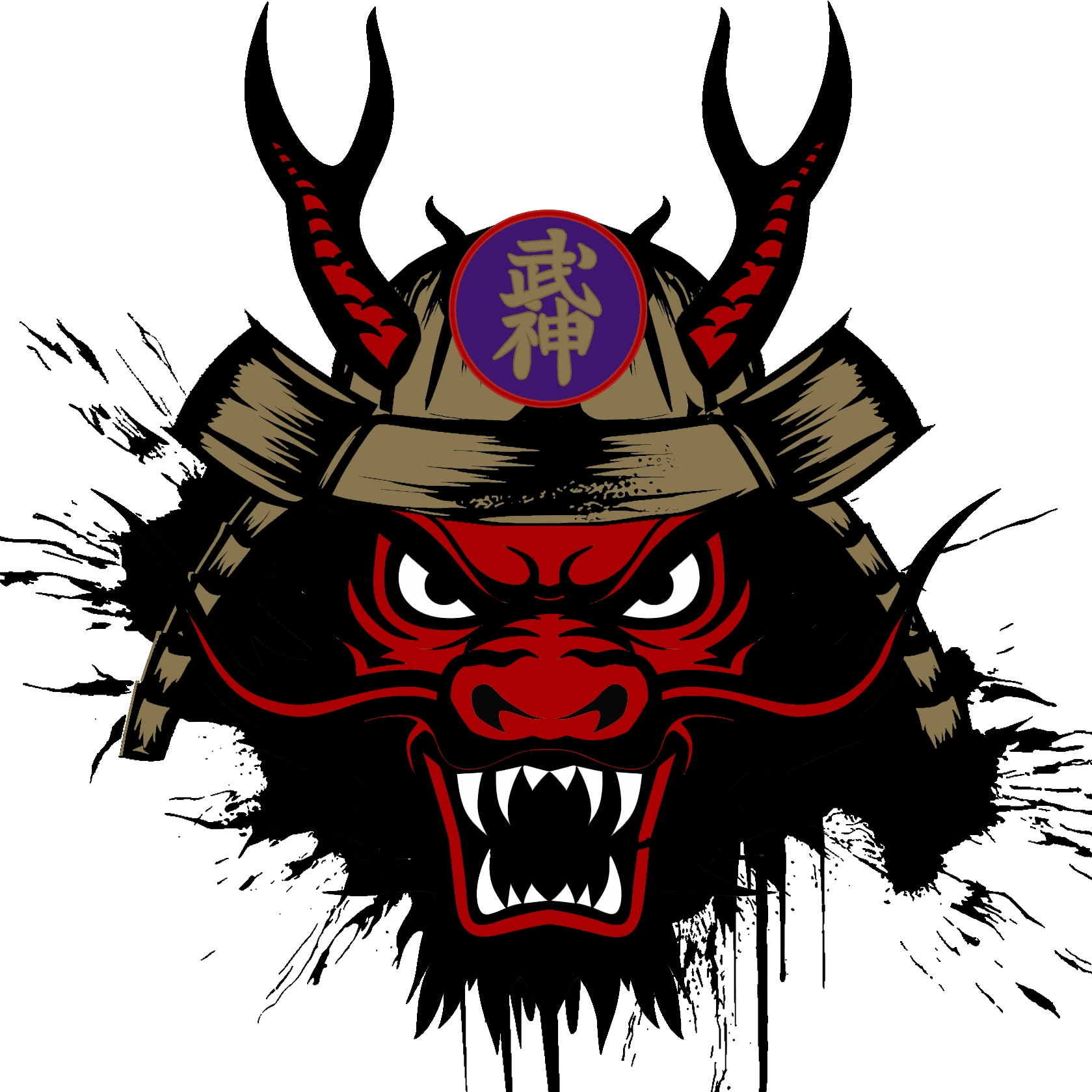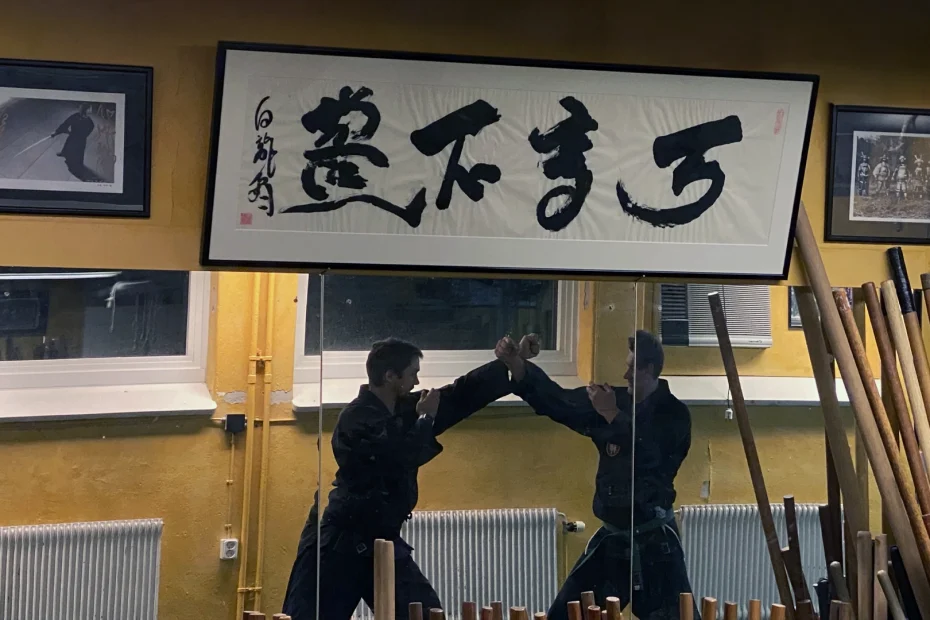Introduction
The Japanese concept of 万変不驚 Banpenfugyō, often associated with martial arts, encapsulates the essence of adaptability and cognitive flexibility. In the heat of a physical confrontation, it beckons martial artists to relinquish preconceived techniques and allow an intuitive, divine power to guide their actions. This essay delves into the philosophy of Banpenfugyō within the context of Bujinkan Budō Taijutsu, exploring how it trains practitioners to seamlessly adapt and respond to ever-changing situations.
Banpenfugyō: Unpredictability in Action
In the world of Bujinkan Budō Taijutsu, Banpenfugyō stands as a guiding principle, urging martial artists to shed the constraints of predetermined techniques. Instead of meticulously planning one’s moves, practitioners are encouraged to embrace spontaneity and allow techniques to unfold naturally during combat.
The title of this essay, “Banpenfugyō,” perfectly encapsulates this concept, emphasizing the need to remain unfazed by the unpredictability of any situation.
“In the midst of battle, one must become one with the chaos, for only then can true mastery be achieved.”
– Miyamoto Musashi
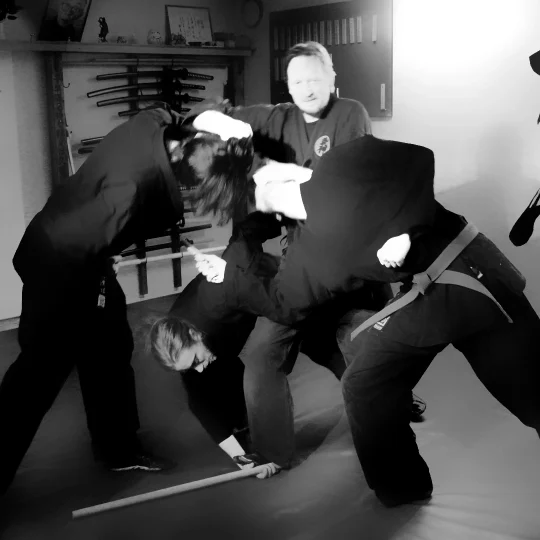
Training in Henka: The Path to Adaptability
At the heart of Banpenfugyō lies the practice of Henka, where the martial artist evolves and adapts fundamental techniques, transforming them to suit the ever-changing demands of combat.
This process not only hones physical skills but also sharpens cognitive flexibility. By constantly varying their responses to attacks, practitioners become more adaptable, capable of reacting effectively to unforeseen circumstances.
Cognitive Flexibility: The Mind’s Role
While physical prowess is crucial in martial arts, cognitive flexibility plays an equally vital role. Martial artists must cultivate the ability to think and adapt swiftly in high-pressure situations.
The philosophy of Banpenfugyō, as practiced in Bujinkan Budō Taijutsu, instills this mental agility, enabling martial artists to respond intuitively and harmoniously with the flow of combat.
“Adaptability is the essence of victory. The rigid are easily broken.”
– Takeda Shingen
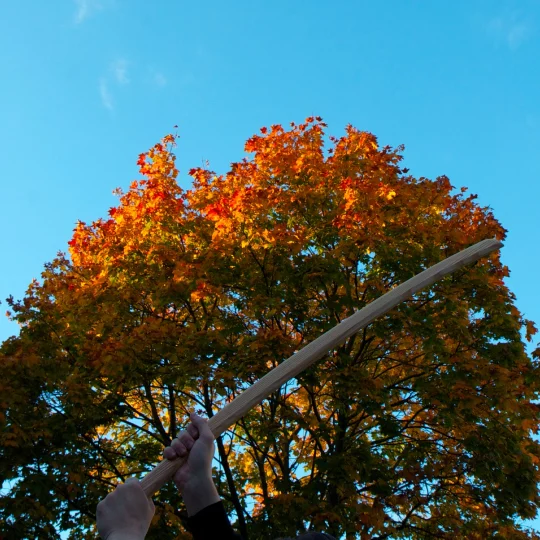
The Divine Power within Banpenfugyō
Banpenfugyō also teaches martial artists to acknowledge a divine, intuitive force at play. When techniques seem to emerge effortlessly, it’s not just luck but an understanding that something greater guides their actions.
Surrendering to this force and allowing it to guide one’s movements can lead to remarkable outcomes.
Application Beyond Combat: Life’s Lessons
The teachings of Banpenfugyō extend far beyond the dojo. Martial artists who embrace this philosophy find themselves better equipped to navigate the challenges of everyday life.
Decision-making becomes more fluid, problem-solving more intuitive, and stress more manageable.
“A warrior’s strength lies not only in technique but in the ability to harmonize with the unexpected.”
– Hattori Hanzo
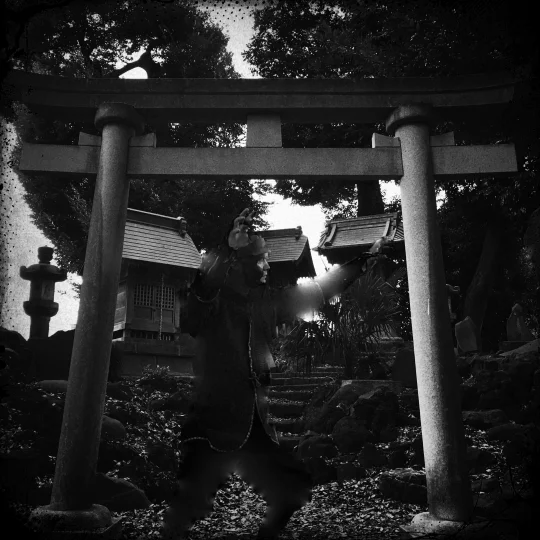
Banpenfugyō in the Honbu Dojo
During a conversation with Nagato Sōke, the concept of the Mandela Effect (false memory) was raised. In response, he displayed the essence of Banpenfugyō, the martial arts philosophy of adaptability and cognitive flexibility. With a direct and impactful statement, he asserted, “You must know, Banpenfugyō!”
This brief yet profound message emphasized the importance of understanding and adapting to life’s ever-changing and unpredictable nature. The ensuing laughter didn’t diminish the gravity of his message but rather highlighted the deep wisdom within it.
Nagato Sōke’s response encapsulated the core of Banpenfugyō, encouraging martial artists to embrace the unknown, adapt intuitively, and recognize that true mastery involves harmonizing with the unpredictable, both in martial arts and in life.

Banpenfugyō, rooted in the physical realm of combat, transcends into a philosophy for living.
Footnotes
- 万変不驚 BANPENFUGYŌ (10,000 changes – no surprise): This term embodies the concept of adaptability in the face of myriad changes. It encourages martial artists to remain unfazed and intuitive in combat, allowing techniques to flow naturally. The painting above the mirror in our Dojo was painted by Hatsumi Sōke.
- 変化 HENKA (Change): Henka refers to the practice of adapting and evolving fundamental techniques to respond effectively to varying combat scenarios.
- The Mandela Effect is an observed phenomenon in which a large segment of the population misremembers a significant event or shares a memory of an event that did not actually occur. I’m sure you will find many things you remembered wrong, look it up!
